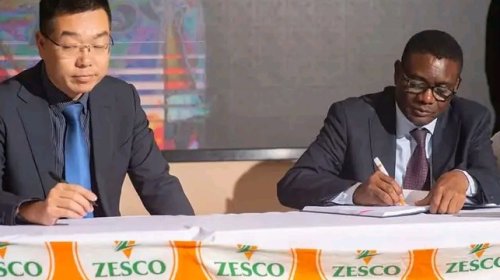Gemfields warns of bleak second-half
“Conditions remain very challenging for Gemfields and for the wider gemstone sector. The effect of travel restrictions, quarantine periods and prohibitions on large gatherings, combined with rising Covid-19 infection rates in our African host nations and in India − our key market for rough emeralds – mean that conditions presently look bleaker rather than better for the remainder of 2020.
“There remains considerable uncertainty as to whether Gemfields will be able to successfully host gemstone auctions by the end of this year,” says CEO Sean Gilbertson.
Gemfields’ auction schedule has been significantly impacted on by the many government measures put in place to mitigate Covid-19 contagion.
Group-wide revenue for the six months ended June 30 decreased by 83% year-on-year to $15-million.
In 2019, 93% of Gemfields’ group-wide revenue of $216-million was derived from the six gemstones auctions held during the year.
Owing to the Covid-19 pandemic, Gemfields has only been able to host one auction this year, yielding $11.5-million from the sale of commercial-quality emeralds.
As a result of the severe impact of Covid-19-related measures on its revenue and operations, the company has implemented measures to cut costs.
On May 1, all UK staff members, including the board of directors, switched to a 20% remuneration reduction, with UK employees placed on a four-day working week. These cost saving measures are expected to remain in place until at least September 30.
“Despite five months without gemstone auction revenue, the cost optimisation initiatives implemented by our hard-working teams and our remaining cash balances enable us to pursue stability in the coloured gemstone sector as we navigate the months ahead and strive to prolong a balancing of the books,” says Gilbertson.
OPERATIONAL UPDATE
Gemfields further reports that all but critical operations at the Montepuez Ruby Mine (MRM), in Mozambique, were suspended from April 22 and are presently expected to remain suspended until at least September 30.
Security, maintenance and other essential services continue to ensure that MRM is properly secured and well placed to resume normal operations as soon as it is both safe and practicable to do so, the company said.
Employees not required for ongoing critical services have been placed on suspended contracts under prevailing Mozambican law and will, for the time being, receive reduced remuneration. The same applies to MRM’s board of directors.
These measures have reduced the overall wage bill at MRM by about 25%.
MRM confirmed ten cases of Covid-19 among on-site employees on July 12 following routine testing.
The bulk of the cases were asymptomatic and all of the affected employees were placed in self-isolation under medical supervision. All those who might have come into direct contact with these employees and those who are vulnerable either owing to their age or underlying medical conditions have also been self-isolated.
Physical distancing measures remain in place at MRM.
All significant capital expenditure projects, including the second ore treatment plant, remain suspended for the foreseeable future.
MRM’s cost saving measures during the crisis have resulted in cash operating expenditure being reduced from about $2.6-million a month to about $1.8-million a month.
Additional cost saving measures that have recently been implemented will further reduce the cash operating expenditure at MRM in the coming months, the company says.
MRM presently has sufficient inventory to support one mixed-quality ruby auction.
Meanwhile, principal operations at the Kagem emerald mine, in Zambia, were suspended from March 30, “putting on hold a good run of premium emerald production”.
The sort house was partially reopened in June to clear a backlog of sorting, grading and referencing of emeralds.
Given prevailing circumstances, principal operations are expected to remain suspended until at least October 31.
Employees not involved in the ongoing delivery of critical services have been placed on reduced remuneration since May under available provisions in Zambia’s New Employment Code Act. The same applies to Kagem’s board of directors. These measures have reduced the overall wage bill at Kagem by about 20%.
Operationally critical employees have remained on full pay throughout the pandemic.
Zambia has experienced an exponential rise in the number of Covid-19 cases in July and a fourfold increase in the number of deaths.
Zambia’s Copperbelt province – where most of Kagem’s employees reside – remains severely impacted; however, there have to date been no known cases of Covid-19 at the Kagem mine itself.
Physical distancing measures remain in place at Kagem. Of the 49 expatriate employees who had remained on site, 15 were given a passage home on special repatriation flights arranged by the government of India.
A further 19 expatriates will go on leave to their respective countries when flights become available.
All significant capital expenditure projects remain suspended for the foreseeable future.
Kagem’s cost saving measures during the crisis have resulted in cash operating expenditure being reduced from about $3.4-million a month to about $1.3-million a month.
Kagem presently has sufficient inventory to support one higher-quality and one commercial-quality emerald auction.
FABERGÉ
Gemfields subsidiary Fabergé’s directly operated retail operations have reopened.
Harrods (which closed its doors on March 25) reopened on June 15, while Fabergé’s Houston boutique (which closed its doors on March 19) partially reopened on May 1 with a by-appointment service that remains in place.
Fabergé’s partner-operated mono-brand boutiques have also reopened.
The Fabergé Dubai Mall boutique (which closed on March 20) reopened on April 28 and its partner-operated boutique in Kiev, Ukraine, (which closed on March 19) reopened on May 22.
In addition, the majority of the multi-brand retailers that Fabergé sells to have also reopened.
Although the luxury retail market has been severely impacted by Covid-19, Fabergé is starting to see gradual signs of recovery in the market, notes Gemfields.
The subsidiary’s revenues have been severely impacted during the first half of this year, bringing in $2.5-million compared with $3.8-million in the first half of 2019.
Fabergé has sought to further reduce its operating costs and increase its online sales.
Source: miningweekly.com





